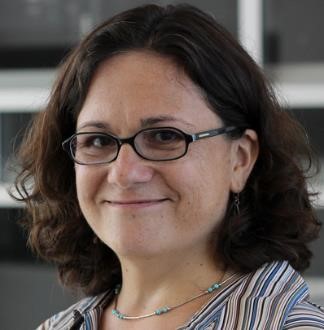Faculty Colloquium Series: Dr. Nancy Plankey-Videla (SOCI) 4/16/19
“The Role of Convergent Media in Anti-Immigrant Times” Tuesday, April 16, 2019, 4-5 p.m. Location: 311 Glasscock Building Dr. Nancy Plankey-Videla Associate Professor | Department of Sociology, 2018-2019 Glasscock Faculty Research Fellow Abstract: On February 12-14th, 2017, there were rumors of an ICE raid in Whitetown, Texas. Reports that ICE was present circulated on social […]

“The Role of Convergent Media in Anti-Immigrant Times”
Tuesday, April 16, 2019, 4-5 p.m.
Location: 311 Glasscock Building
Dr. Nancy Plankey-Videla
Associate Professor | Department of Sociology, 2018-2019 Glasscock Faculty Research Fellow
Abstract:
On February 12-14th, 2017, there were rumors of an ICE raid in Whitetown, Texas. Reports that ICE was present circulated on social platforms and radio stations in the area. As a result, high levels of anxiety permeated the Latinx, fearing deportation. In this paper, Dr. Plankey-Videla, et al., asserts that mobilization within the Latinx community, combining both people of legal status and those of unauthorized and liminal status, remained faithful to Spanish-language radio for more reliable and trustworthy information. While social platforms, like Facebook, provided immediate information, respondents found the information to contribute to broader community fear. Dr. Plankey-Videla, et al., investigated the affordances and limitations of Facebook and radio talk shows as forums of information. Their findings suggest that heightened threats of deportation can accentuate divisions among the Latinx community, focusing on which immigrants deserve to be deported. The Latinx community in this study internalized the notion of the “good” immigrant as the basis of worthiness to stay in the U.S. as a central feature to alleviate their anxiety about deportation.
The Faculty Colloquium offers faculty an opportunity to discuss a work-in-progress with colleagues from different disciplines. By long-standing practice, colloquium presenters provide a draft of their current research, which is made available to members of the Glasscock Center listserv. Each colloquium begins with the presenter’s short (10-15 minute) exposition of the project, after which the floor is open for comments and queries. The format is by design informal, conversational, and interdisciplinary.
The Glasscock Center extends a warm invitation to faculty and students to join in a discussion of Dr. Plankey-Videla’s work-in-progress. The paper is available to members of the Center’s listserv, or by contacting the Glasscock Center by phone at (979) 845-8328 or by e-mail at glasscock@tamu.edu.
Join the Center’s listserv to receive regular notices of colloquium events.
